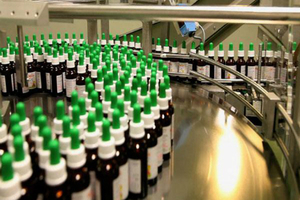According to a research, there are opportunities to produce specific pharmaceutical items in Ethiopia, a market that is now dominated by imports.
By 2025, Ethiopia’s domestic pharmaceutical business may be valued more than $1 billion. A increasing middle-income base and urbanisation at a rate of 5.4 percent per year are predicted to fuel growth, resulting in improved access to healthcare as cities improve their infrastructure and healthcare facilities.
Imports contribute for 65 percent to 75 percent of the Ethiopian pharmaceutical market, with India (22 percent), the Netherlands (20 percent), and Belgium accounting for the majority of the rest (13 percent ). Finished pharmaceutical items account for the majority of imports, accounting for over 80% of all pharmaceutical products imported in 2019. The following are some of the most important products imported into Ethiopia:
60% – anti-infectives
9% – central nervous system medicines
8% – water and acid base electrolytes
5% – endocrine disorder and contraceptives
The Ethiopian Pharmaceutical Supply Agency (EPSA) is the country’s single most influential buyer, accounting for 60% of overall pharma spending. Antivirals and antibacterials are common purchases in the public and social sectors.
There are just 11 manufacturers in the country, 45 percent of which are jointly held by international and local investors. With two joint ventures and one fully-owned enterprise, China is becoming a major player in Ethiopia’s pharmaceutical industry.
Ethiopia’s government has taken a number of steps to enhance the sector. It has devised a 10-year pharmaceutical production strategy and action plan. Kilinto Park is Africa’s first dedicated industrial park, spanning 279 hectares and dedicated to pharmaceutical manufacture on 136 hectares. The park is 15 kilometres from the city centre of Addis Ababa, 863 kilometres from the port of Djibouti, and a 10-minute drive from Bole International Airport. Investors are given serviced or ready-to-use land with shared infrastructure and services, allowing them to get started quickly.

